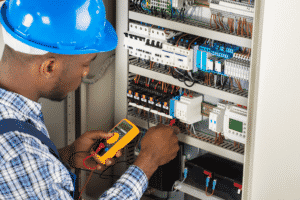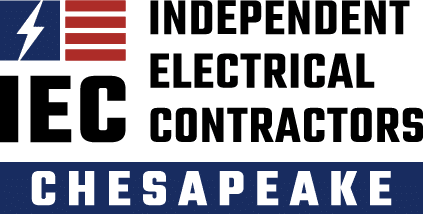April 2019 Maryland General Assembly Legislative Update
OVERVIEW
The Maryland General Assembly concluded its 2019 legislative session on April 8th. IEC Chesapeake had an active presence in Annapolis. IEC Chesapeake provided testimony on a variety of bills affecting the electrical industry, apprenticeship training, labor, and general business issues. This update highlights four pieces of legislation. A more detailed report and analysis on the Maryland Budget and other legislation will appear in the next legislative update.
LEGISLATION OF INTEREST
1) House Bill 792-Maryland Electricians Act-Revisions and House Bill 905-Electricians-Low-voltage Electricians, Continuing Education, and Penalties both received unfavorable reports in the House Economic Matters Committee. IEC Chesapeake once again played a leading role in trying to enact a Maryland state journeyperson’s electrician license and address issues relating to low voltage electrical workers. IEC’s efforts to enact a statewide journeyperson’ s license began last summer with stakeholder meetings which included IBEW, NECA, ABC, Comcast, Direct TV and other low voltage groups. The Maryland Association of Counties (MACO) also participated in the various meetings before the legislative session and during the 2019 legislative session.
Despite the great effort by the sponsor, Delegate Kevin Hornberger, both bills did not pass. There was a sense among the legislators that the proposed legislation was too complicated. On March 1st, Grant Shmelzer testified in support of this legislation. Following the legislative session, IEC Chesapeake will work with interested parties including legislators, representatives of local governments, the Executive Branch, IBEW, NECA, and ABC to develop a plan to enact a statewide journeyperson electrician license.
2) House Bill 586—Public Safety-Solar Photovoltaic Systems-Lockout Tag Requirement and Study – IEC Chesapeake testified against House Bill 586 in three different committees. The first hearing was in House Economic Matters Committee on February 14th. After passing the House of Delegates, IEC Chesapeake testified against House Bill 586 in the Senate Judicial Proceedings Committee on March 26th. The bill was subsequently referred to the Senate Finance Committee where IEC Chesapeake opposed it on April 4th. The basis of IEC Chesapeake’s opposition to the bill was that requiring a lockout tag should be addressed in the 2020 National Electrical Code (NEC). In addition, IEC opposed the retroactive lockout tag installation requirement for over 60,000 households. This retroactive requirement would be unwieldy and unfair. Finally, IEC Chesapeake opposed the fines of up to $500 dollars that were in House Bill 586.
House Bill 586 passed in a heavily amended form. The amended bill eliminated the proposed civil penalties, and the retroactive requirements of installing lockout tags. However, the legislation (http://mgaleg.maryland.gov/2019RS/bills/hb/hb0586E.pdf) does require that the Department of Labor, Licensing, and Regulation (DLLR) report back to the legislature by December 1, 2019, about how to address the lockout tag requirements for already installed solar photovoltaic systems.
April 2019 Maryland General Assembly Legislative Update
4) Minimum Wage Increase Legislation- The Maryland General Assembly passed an increase in Maryland’s minimum wage. Governor Hogan vetoed the legislation, but the General Assembly overturned the Governor’s veto. IEC Chesapeake submitted testimony opposing the provision which would have automatically increased the minimum wage based on increases in the consumer price index (CPI). This provision was stricken from the legislation.
Summary of Maryland’s new Minimum Wage Law is as follows:
- January 1, 2020 — $11 per hour for all employees
- January 1, 2021 — $11.75 per hour for employees who work for businesses with 15 or more employees. For employers with fewer than 15 employees, the minimum wage will be $11.60 per hour
- January 1, 2022 — $12.50 per hour for employees who work for business with 15 employees or more. For employers with fewer than 15 employees, the minimum wage will be $12.20 per hour
- January 1, 2023 — $13.25 per hour for employees who work for business with 15 employees or more. For employers with fewer than 15 employees, the minimum wage will be $12.80 per hour
- January 1, 2024 — $14.00 per hour for employees who work for business with 15 employees or more. For employers with fewer than 15 employees, the minimum wage will be $13.40 per hour
- January 1, 2025 — $15.00 per hour for employees who work for business with 15 employees or more. For employers with fewer than 15 employees, the minimum wage will be $14.00 per hour
- January 1, 2026 — $14.60 per hour for employees who work for business with 15 employees or more.
- July 1, 2026 — $15 per hour for all employees
Other provisions of the minimum wage legislation include workers younger than 18 years of age can be paid 85% of the minimum wage rate. During the phase-in period of the minimum wage increases, the Maryland Board of Public Works can delay the increase one-time based upon certain negative economic indicators.
CONTACT INFORMATION
Is Your Wallpack This Flexible?Kevin O’Keeffe
[email protected]
(410) 382-7844













